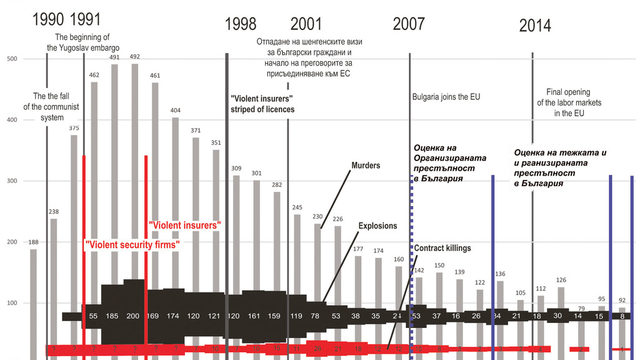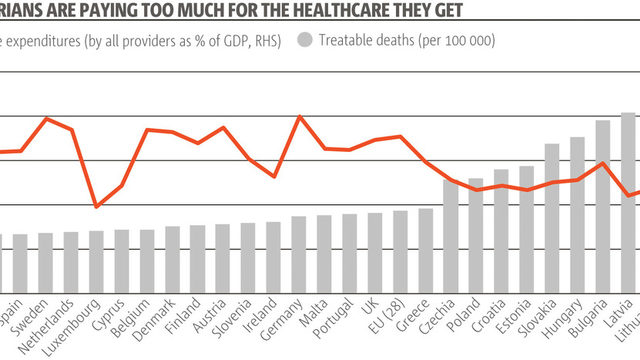LESS CRIMINAL BRUTALITY Violence associated with organized crime continues to decline, according to the 2019 Bulgarian Organized Crime Threat Assessment by the Sofia-based Center for the Study of Democracy. This is in stark contrast to the 1990s when violence was widespread and open, and the turn of the century when a large number of persons associated with the underworld were murdered. In general, the data demonstrates significantly lower levels of serious and organized crime.
However, the reorientation of the organized criminal groups to white-collar crime and their internationalization to a large extent explain the decrease in violent crime in Bulgaria. For example, the report finds that cybercrime continues to increase. Additional factors for the fall in crime levels are the continued net emigration, the overall decrease of Bulgaria's population and the low unemployment in recent years.
WASTED LIVES Bulgaria ranks fourth in the EU in terms of treatable deaths, i.e. mortality that could have been avoided if diagnosed and treated accordingly. Most East European countries, except for Slovenia, are leaders in the grim statistics. But unlike Bulgaria, which hasn't budged in the 2011-2016 period (this is the last published data from the 2019 State of EU Healthcare report of the European Commission), all of them are making improvements. Some have made a significant advance since 2011 like the Czech Republic which has decreased the treatable deaths rate by 13%.
The discrepancy between Bulgaria and the other EU member states is made starker by the fact that the country spends more money relative to its GDP even in comparison with more advanced countries like Ireland or the Czech Republic. It is shocking that during the period 2010-2017 the number of hospital discharges in Bulgaria has increased by 20%, while the population has shrunk. The hospitalization would suggest the treatable deaths should have decreased but this hasn't happened, implying a massive waste in Bulgaria's healthcare system.


LESS CRIMINAL BRUTALITY Violence associated with organized crime continues to decline, according to the 2019 Bulgarian Organized Crime Threat Assessment by the Sofia-based Center for the Study of Democracy. This is in stark contrast to the 1990s when violence was widespread and open, and the turn of the century when a large number of persons associated with the underworld were murdered. In general, the data demonstrates significantly lower levels of serious and organized crime.
However, the reorientation of the organized criminal groups to white-collar crime and their internationalization to a large extent explain the decrease in violent crime in Bulgaria. For example, the report finds that cybercrime continues to increase. Additional factors for the fall in crime levels are the continued net emigration, the overall decrease of Bulgaria's population and the low unemployment in recent years.












